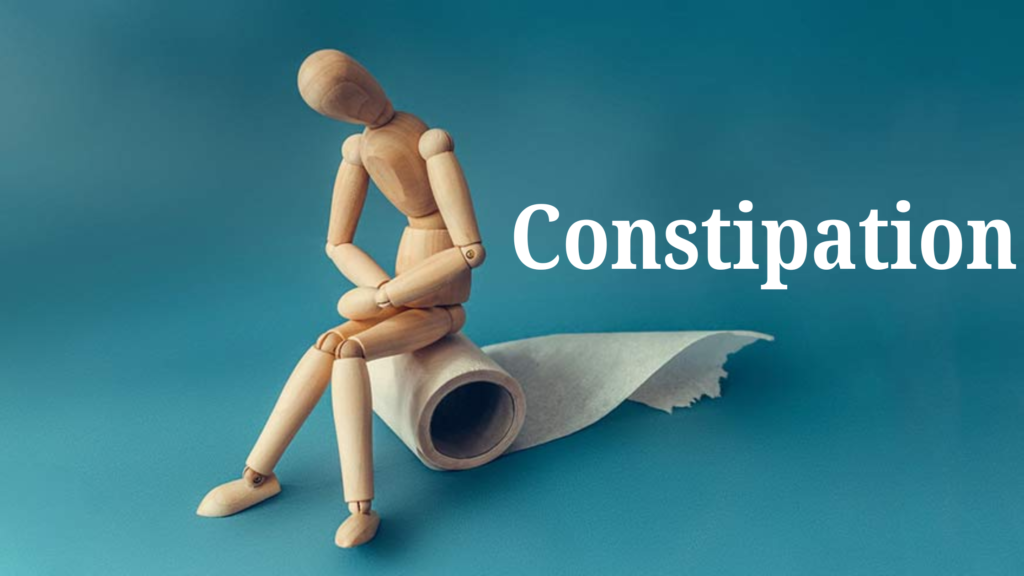❓ What Is Constipation?
Constipation is when you have infrequent bowel movements or difficulty passing stools. Typically, it means:
- Fewer than 3 bowel movements per week
- Hard, dry, or lumpy stools
- Straining to pass stool
- Feeling like the bowel isn’t fully emptied
🔍 Common Causes:
- Low-fiber diet
- Not drinking enough water
- Lack of physical activity
- Ignoring the urge to have a bowel movement
- Changes in routine (travel, pregnancy, stress)
- Certain medications (e.g., painkillers, iron, antidepressants)
- Health conditions like:
- Diabetes
- Hypothyroidism
- Irritable bowel syndrome (IBS)
⚠️ Symptoms:
- Hard, dry, or small stools
- Pain or straining during bowel movements
- Bloating or stomach discomfort
- Feeling “blocked” or not fully empty
- Needing help (like pressing on the belly or using fingers) to pass stool
✅ Treatment:
💧 Lifestyle Changes:
- Drink plenty of water
- Eat more fiber-rich foods:
- Fruits (apples, berries, pears)
- Vegetables (broccoli, spinach, carrots)
- Whole grains (oats, brown rice)
- Legumes (beans, lentils)
- Be physically active
- Don’t ignore the urge to go
💊 Medications (if needed):
- Fiber supplements (e.g., psyllium)
- Stool softeners (e.g., docusate)
- Laxatives (use with care):
- Osmotic (e.g., polyethylene glycol)
- Stimulant (e.g., senna, bisacodyl)
🚨 When to See a Doctor:
- Constipation lasts more than 2 weeks
- Blood in the stool
- Unexplained weight loss
- Severe abdominal pain
- Frequent use of laxatives with no relief
